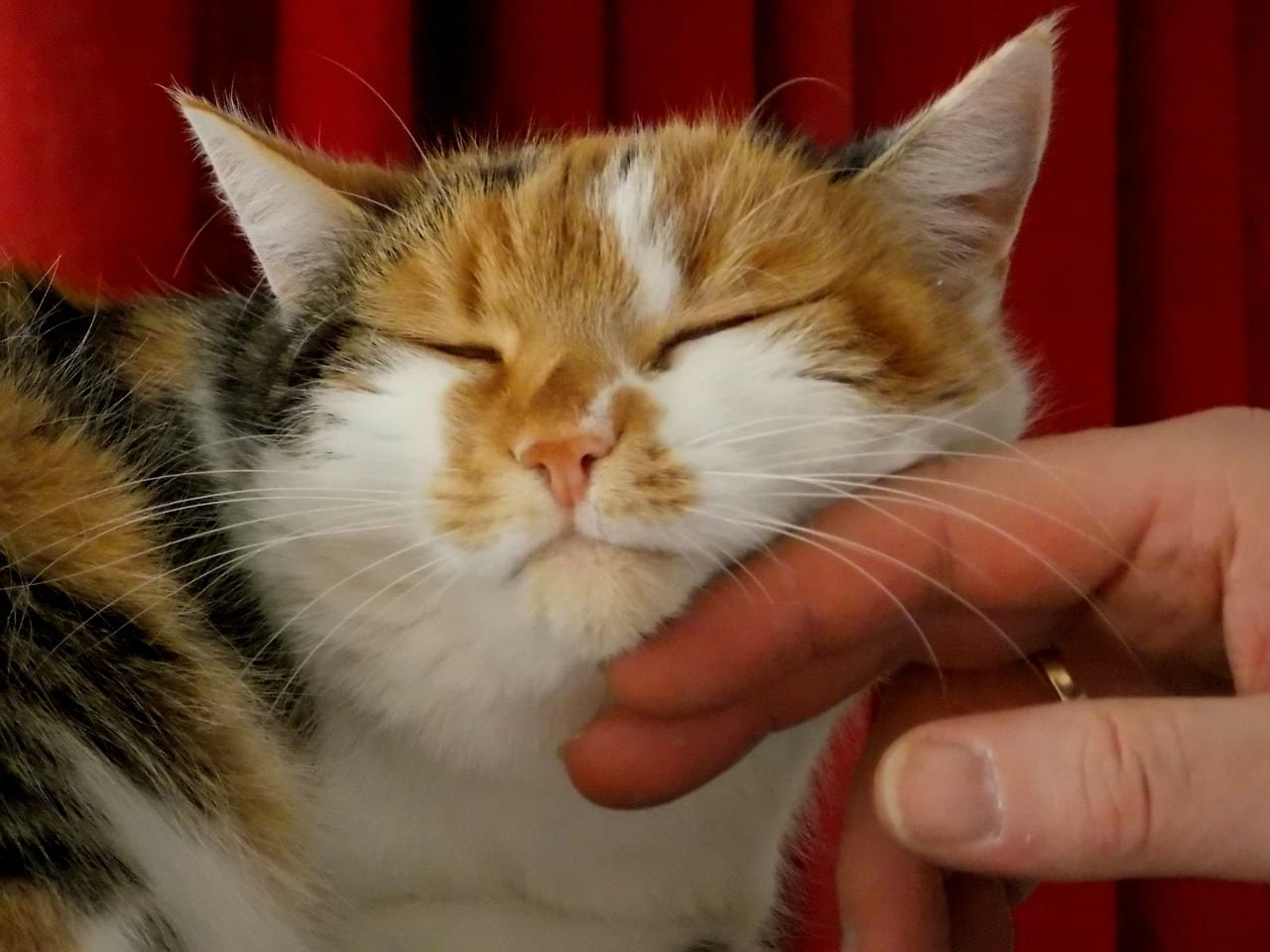
Our beloved cat can sometimes do the odd mischief that, why are we going to fool ourselves, we may not like it too much. But if we take into account that it is a very sensitive animal and that it also has a much more developed sense of hearing than we do, we can intuit that there are things that we cannot and should not do.
Therefore, it is important to know how to scold a cat correctly so that, in this way, he learns to behave, at his own pace.
What to do when a cat misbehaves
If you don't want your cat to misbehave, you have to encourage good behavior. Cats are much more receptive to rewards and rewards than to punishment. But you can discourage bad behavior by trying a few tricks.
These tricks will serve you for different types of bad behavior, for example, so that he does not bite, so that he does not urinate where he should not ... Although remember that before trying to correct the bad behavior, it is necessary that you first understand why he does it.
- Shake a loud can- If you see your cat jumping on counters or somewhere it shouldn't be, shake a can with some coins inside to scare your cat.
- Use deterrents- Some cats dislike citrus smells, red pepper flakes, and commercially available sprays designed to keep cats away from certain areas. There are also special sprays that taste bad to discourage pets from chewing on things.
- Use a water spray bottle- No one, including cats, likes to have water sprayed on them. Try a quick spritz on your cat if she is somewhere or doing something she shouldn't be doing. Just reaching for the spray bottle will likely deter bad behavior after a few times.
- Double sided tape or aluminum foil- These simple things can be placed on surfaces you don't want your cat to scratch on. Cats don't like unpleasant textures.
- Use a firm tone of voiceScare your cat with a loud "ow" or another word to end any rude behavior. This is effective for cats that are aggressive towards people and may bite or scratch your arm or leg.
- Wait a while- Gently put your cat in the bathroom or other room without people in it for 20 minutes if it is misbehaving. Very often, you will leave the room with a different attitude.
Now we are going to see what to do in a specific situation. Imagine that, for example, we have caught him just at the moment when he was scratching an armchair. How do we have to react? The step by step would be the following:
- The first thing we will do is say a firm NO, but without yelling.
- Afterwards, we will lead him - directing him with a cat treat - to his scratching post. If you didn't, we'd have to buy you one.
- Then we will put our hands on the scratching post and pretend to scratch it. Thus, little by little he will learn by imitation.
- Finally, we can put a fabric that protects the chair from scratches (you have more information here).
In the event that he had broken an object or had done something similar, there is no need to get angry. Saying a firm NO only works if we catch it "red-handed." Breathing deeply and / or listening to relaxing music will be very helpful to calm us down.
In addition, we have to be clear that there are certain things that we should NOT do. In the case of taking these measures, we would make the cat feel fear towards us, and therefore the affective bond that unites us would be broken.
- Mistreat him: This is not that it should not be done, it is that it is prohibited. But many times we think that mistreating a cat is "just" hitting it, yelling at it and / or abandoning it, but in reality it is much more. A cat that does not receive the attention it needs (veterinary, affection, companionship) is also an abused animal.
- Ignore their signs of calm: the cat's body language is very rich. Before attacking, what it will do is tap its tail against the ground, avoid our gaze, snort and / or growl at us. If we ignore all these signs, we will lose our trust in the animal.

Why scolding is not always a good option

Scolding your cat can be a natural reaction when you see him misbehaving, but that doesn't mean it will get you anywhere. In fact, scolding often fails, making the problem worse or at least seriously confusing your cat.
Here are some reasons why scolding your cat doesn't work and what to do instead.
Your cat does not read your mind
Scolding may make sense to you, but that doesn't mean it is for your cat. In fact, pets often have no idea what just happened or why you yell at them. Your cat does not understand what you are saying, so it is important to understand why a cat may be behaving in a specific way and then solve the problem from that starting point.
Even if your cat gets the nagging message that scratching furniture is bad, she's more likely to learn to make sure you're not around before she starts scratching her nails on your expensive couch again. In other words, Instead of learning not to do the behavior at all, your cat will learn to do the unwanted behavior when you are not around to scold him.
Your time will be wasted
If you scold your cat while you are in the process of getting her off the counter, she may associate the scolding with being picked up rather than being on the counter itself. While it may be obvious to you that you want the cat to stop jumping on the counter, the cat may perceive that the scolding has to do with a noise that happens coincidentally at the same time, or some other unrelated event.
When you scold your cat, it usually doesn't make sense because it rarely happens at the same time as the "bad" act. Unless the punishment is carried out within seconds after the act for which we are punishing, your cat may not know exactly why he is being punished.
Scolding does not solve the problem
Cats repeat a behavior because there is something good for them. For example, your cat could be pushing things off the table because it's fun, or jumping on the counter because it offers the best view from the kitchen window. Instead of scolding your cat for doing something that feels natural, change the environment and give her an alternative.
If you don't want your cat to climb on your counter, turn it into a negative space. You can do this by placing double-sided tape or aluminum foil on the countertop to make the space uncomfortable. Once they've learned that they don't like it, you can remove the deterrents because it won't go back up.
Although you should keep in mind that most cats like to climb on things, so it is ideal that you have many friendly places for your cat to climb and hang out. For example, adding a window section for better views of the outdoors or putting some interactive toys nearby for your cat to play with is a good way to help redirect his energy.
You can change your behavior
Scolding your cat too much can make your cat feel uncomfortable at home and change his behavior. He will stop being himself because he will not be comfortable where his home or comfort zone should be. Think of a boss or teacher who used to scold you a lot, and not always in a way that made sense… Did you like that person, or did you feel nervous when that person was around?
Scolding can make your cat nervous and sensitive to movement or the presence of people, as it may be constantly nervous waiting for you to say something. Scolding can teach your cat that you are a scary person. You can increase your bond with your cat and avoid restlessness by using positive reinforcement.
Food is a primary motivation we often think of, but some cats are motivated by attention, affection, or play. Find out what motivates your cat and use it to teach him a trick or to help him learn the behaviors you want them to do.. Then when they misbehave, use that trick to help redirect the behavior.
Can encourage bad behavior
Even though it's negative attention, scolding your cat is still paying attention to him, something he probably wants. Just as a three-year-old can do something "bad" for mom or dad to see, your cat can do a behavior that will surely make you scold him because it is a way to get your attention. That means by scolding the cat, you may actually be encouraging it to continue misbehaving.
This reaction highlights one of the main problems with scolding: it doesn't teach your cat what behaviors you'd like him to do. In fact, it is just a confusing directive not to do something without a clear direction of what to do. It is much better policy to teach the cat where to be (such as on a bed or mat rather than a counter or table), rather than saying 'not there, not there, not there' all the time.
If you see your cat doing something inappropriate, it is advisable to redirect him in a positive way. For example, call out your cat's name or do something else to get her attention and then offer cat treats or a toy to play with.
This will distract your cat from whatever bad behavior he was doing. You can then spend a few minutes playing or petting your cat, at which point the cat will be much less likely to revert to the previous annoying behavior.
As you can see, scolding your cat is not always the solution, what matters above all is to understand the behavior of your feline friend and offer you alternatives to redirect your behavior appropriately.

Cats can be affectionate, and also somewhat unruly. But you have to love them as they are ... because they deserve it. They deserve all the good that happens to them.
